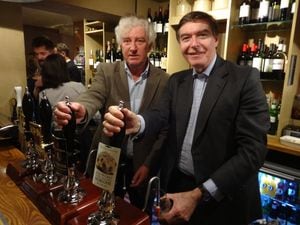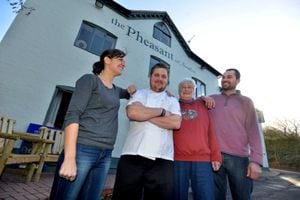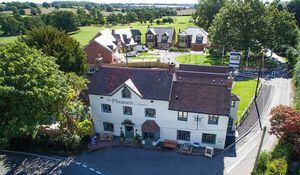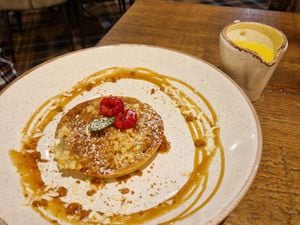Could community groups save the Great British Local?
It's Sunday night at The Pheasant in Neenton, and the place is packed to the rafters. Hordes have turned out for a live music performance, and earlier in the day the place had been heaving with diners.

"We've served about 110 lunches, and had to turn 50 to 60 away," says John Pickup.
At a time when, on average, 30 pubs are closing every week, this would be an achievement in itself, particularly in a village with a population of 140. But given the fact that The Pheasant was brought back to life by the local community, falling into a state of rack and ruin, it is little short of remarkable.
The Pheasant, just outside Bridgnorth, is one of a growing number of pubs which looked destined to disappear before being rescued through the sheer determination of the communities they served. The White Hart in Alton, Staffordshire, is another example, while a group of villagers have just saved the 17th century Boot Inn at Orleton, near Ludlow, from being turned into housing.

A new report by rural development charity The Plunkett Foundation shows that pubs owned as community businesses are thriving where private enterprise has failed. The charity says community pubs are stronger than ever, with interest continuing to grow.
The number of community-run pubs grew by 30 per cent during 2017, the most recent figures available, taking the total number to 85. Of course, this is still a drop in the ocean compared to the major pub chains, but the impressive thing is that none of them have yet closed. Furthermore, 153 groups were actively exploring the possibility of setting up community pubs in their neighbourhoods.
The Pheasant had been lying empty for five years when it was reopened by Neenton Community Society in 2014. Mr Pickup, who is the society chairman, is keen to point out that unlike many such ventures, it is a professionally run operation. Day-to-day running falls to experienced chef Mark Harris and front-of-house manager Sarah Cowley.

"It is community owned, but not community run," he says. Mr Pickup adds that 90 per cent of the £800,000 spent on buying and refurbishing the pub was raised by locals, although there was also a grant from the Marches redundant building fund. More than £400,000 was generated by a joint venture with Shropshire Housing Group, which saw seven houses built on land at the rear of the pub.
“We had a community share project where people bought shares in the company, and some individuals in the community lent significant sums of money," he says.
According to the Plunkett Foundation, the vast majority of these ventures are self-funding, with 74 per cent of all start-up costs sourced from community shares.
In March 2016 the Government made £3.6 million available for the More Than a Pub. which provides help towards start-up costs and a dedicated loan and grant programme. The majority of the 14 community pubs which opened in 2017 took advantage of the scheme, but it is set to end in March this year. Plunkett is now working with the lottery-funded Power To Change organisation, which is making £2.2 million available for communities seeking to save their local pub.

The foundation's head of community business, Chris Cowcher, says the success of pubs such as The Pheasant demonstrates how community businesses are at the forefront of strengthening the rural economy.
"As well as saving vital rural services such as shops and pubs, the stand out success of community businesses is found in the social impact they achieve," he says.
"They bring people together of all ages, backgrounds, interests, and give them a purpose to interact. Put simply, community shops and community pubs reduce social isolation and loneliness.”
Mr Pickup says saving The Pheasant was not all plain sailing.
"Our builder went bust in the middle of the building work, and we ended up with debts as a result of that," he says.
"But we are now making a profit, and paying off our debts.

"The people who have invested in the project get a return, it will be better than they would get putting their money in the building society, but that is never what it was about. It is about rejuvenating our village."
Over at The Boot, chairman of the Orleton Community Benefit Society John Alderman says that having managed to buy the pub, the real work is now about to start.
"Now the hard work begins to immediately protect against any further damage and then refurbish the buildings," he says.
"The immediate priorities include repairing the roof, which is urgent, replacing windows and shoring up the listed ‘single cell' building," he says.
"The aim is to be ready to open for business sometime during the summer."
Back at Neenton, Mr Pickup says he is not surprised that by the success rate of pubs which have been saved by their communities. But he says it depends a lot on the nature of the villages they serve.
"If you have the only pub in a village which is supported by a large number of people, and you have volunteers who will help you cut the costs, that makes it much easier," he says.
But he says a village like Neenton would not be able to support a pub on its own, and he says the hard work has been attracting people from outside.
"In a village like ours, it has always been about 75-80 per cent of our dining trade from outside the area," he says. That's how it is set up, because we are a tiny village."





